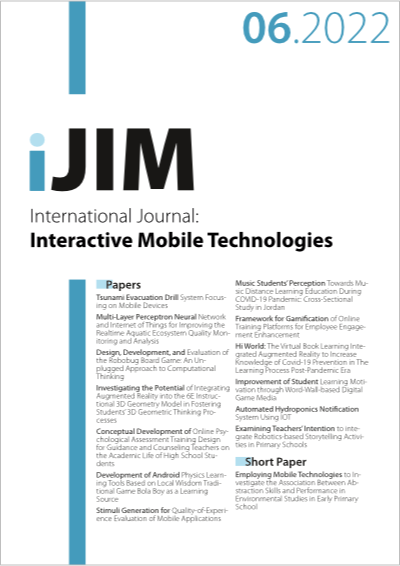Stimuli Generation for Quality-of-Experience Evaluation of Mobile Applications
DOI:
https://doi.org/10.3991/ijim.v16i06.28691Keywords:
quality of experience, qoe, mobile device, mobile applicationsAbstract
The assessment of Quality-of-Experience (QoE) corresponding to a given set of Quality-of-Service (QoS) parameters is of high importance for any mobile network operator. Methods for subjective QoE assessment such as MUlti Stimulus test with Hidden Reference and Anchors (MUSHRA) or Subjective Assessment Methodology for Video Quality (SAMVIQ) are based on collecting user feedback for one or several stimuli, i.e. differently processed versions of a source.
Generating these stimuli corresponding to a given set of QoS parameters for a QoE assessment of a mobile application is a time-consuming, non-trivial task. Therefore, in this paper we propose a novel publicly available open-source framework for stimuli generation for QoE assessment of mobile applications. It is based on the combination of network emulation and automatic user-interface control of a real mobile device, whose behavior is recorded and post-processed to generate suitable stimuli.
The article presents the basic concept of the framework, describes its open-source implementation, and concludes with an initial evaluation of the framework based on typical types of mobile applications.
Downloads
Published
How to Cite
Issue
Section
License
Copyright (c) 2022 Lars Wischhof, Jan Andreas Krahl, Robert Müllner

This work is licensed under a Creative Commons Attribution 4.0 International License.


